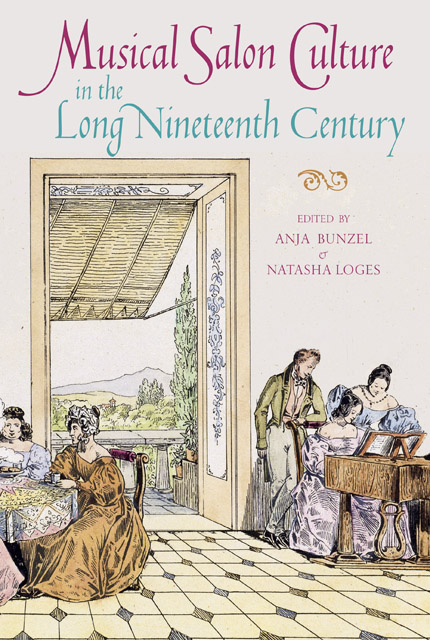2 - Accidental Aesthetics in the Salon: Amateurism and the Romantic Fragment in the Lied Sketches of Bettina von Arnim
Published online by Cambridge University Press: 17 January 2023
Summary
Bettina von Arnim is best known for her social role within early nineteenth-century German salon circles and for her literary achievements, which include the three epistolary books, Goethes Briefwechsel mit einem Kinde (1835), Die Günderrode (1840), and Clemens Brentanos Frühlingskranz (1844). In addition to being the sister of the writer Clemens Brentano and the wife of Brentano’s close colleague Achim von Arnim, she was personally entangled with Johann Wolfgang von Goethe and Ludwig van Beethoven and maintained other important relationships with prominent cultural figures. From 1810 to 1859, when she lived in Berlin, she was also an integral part of salon life there, as both a frequent guest and hostess. Less well known is the fact that she also engaged in the improvisation and composition of Lieder. Although the scholars Ann Willison Lemke and Renate Moering have done extensive work on her musical compositions and activities, her musical profile remains slight within musicology. Her status as an amateur composer who enjoyed only limited skill in comparison to her abilities as a writer has been problematic for her status as an object of further musicological study. While she did publish a handful of songs to some success, much of the evidence that we have of this salonnière’s compositional activities come in the form of unfinished sketches and other scribbles in her personal musical notebook, held today at the Pierpont Morgan Library as manuscript Heineman 9B.
This essay looks at one of the most pregnant of the unfinished sketches in that source: a melodic outline of a setting of Johann Wolfgang von Goethe’s ‘Wandrers Nachtlied’ II (‘Über allen Gipfeln ist Ruh’). Although nominally a sketch study, this investigation departs from the traditional method of dealing with sketches as preliminary drafts of finished works. I treat Arnim’s sketch as an aesthetic object that points towards overlapping social and aesthetic aspects of Lied composition in relationship to salon musical activity in the early nineteenth century. More specifically, I classify the sketch as what I will call an ‘accidental’ and ‘amateur’ Romantic fragment. This framework builds on the aesthetic category of the Romantic fragment in order to illuminate underexplored aspects of that aesthetic category itself, to broaden its relationship to Lieder as a genre inherently associated with the salon and amateur musical activity, and to interrogate the status of amateur compositional activity – especially by women connected to salon life – within musicological study of the nineteenth century.
- Type
- Chapter
- Information
- Musical Salon Culture in the Long Nineteenth Century , pp. 27 - 42Publisher: Boydell & BrewerPrint publication year: 2019

